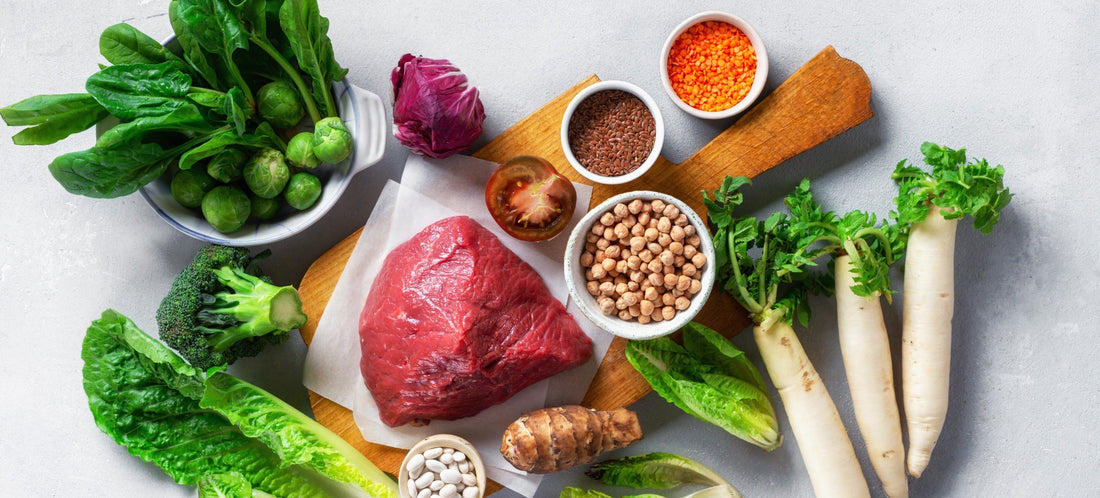Best Iron-Rich Foods for Your Baby
| updated:Share

When it comes to infant nutrition, new parents face a litany of information — some factual and some less-than. While getting advice from friends and family (or the latest influencer or mommy blogger) is fine, discussing nutrition with medical and dietary professionals is best.
Every person has different nutritional needs, but there are standards and guidelines you can follow. Babies have precise nutritional demands that ensure proper growth and development. While infants get most of what they need through breast milk or fortified formula, some may need help getting enough specific nutrients, such as vitamin D and iron.
You can introduce vitamin D and iron-rich foods to babies when they are old enough. Until then, you can offer supplements, such as Wellements Vitamin D Drops for newborns. While drops are a fine addition to specific vitamins, are they necessary for iron? After all, doesn't your baby get enough iron from breast milk or formula?
How Much Iron Does Your Baby Need?
Iron is a vital nutrient found in various plants and animals, and it is a crucial element of hemoglobin — the element of red blood cells that transports oxygen from the lungs to the rest of the body. Iron helps hemoglobin bind to oxygen.
Iron needs change with age; even newborns and infants have different needs. Breastfed babies typically get enough iron from their mothers from birth to about six months. Since most formulas are nutrient or iron-fortified, formula-fed babies also get enough iron in their diets. From seven to 12 months, babies need a minimum of 11 mg of iron per day.

Why Do Babies Need Iron?
Babies need iron because it is vital in healthy tissues and blood. Muscles need adequate oxygen levels to function correctly, as do the brain and other organs in the body.
Iron deficiency can cause a specific form of anemia that results in a reduced number of red blood cells. With too few blood cells and less oxygen carried through the body, babies may experience growth and developmental delays or mental and physical ailments.
When too old for fortified formulas, iron-rich foods for babies can help ensure adequate iron supplies. You can also introduce Wellements Organic Iron Drops when your little one is four months old.
Iron Rich Foods
When your little ones transition to solid foods, you can ensure they get adequate iron by making appropriate food choices. Animal proteins are excellent sources of iron. The nutrient in animal products is easier to absorb than in plant sources. Still, there are options for vegan or vegetarian babies. Some of the best food sources for iron include:
- Poultry, pork, beef, and seafood
- Legumes
- Fruits
- Tofu
- Dark leafy greens
- Fortified cereals and bread

How To Increase Absorption
To increase the absorption of iron-rich food for babies, it is necessary to understand the difference between types of iron. Heme iron is easier to absorb and comes from animal-based proteins. Non-heme iron exists in plant-based proteins and is a little more challenging for the body to convert into a usable form.
Still, if you are a vegan or vegetarian and want your child on a similar diet, you can help increase the absorption and usability of non-heme iron. The best way to increase absorption in a plant-based diet is by serving iron-rich foods with vitamin C-rich foods, such as oranges, strawberries, sweet potatoes, bell peppers, etc.
Cooking your little one's meals in a cast iron skillet can also increase their iron intake and absorption. One study suggests consuming meals cooked in cast iron can raise iron and hemoglobin levels in the body.
Iron is essential to your little one's development. While breast milk and fortified formula can offer enough of the mineral, as your child switches to solid foods, it is necessary to pay attention to protein sources, possibly supplementing nutritional elements. As always, talk to your child's healthcare provider to learn more.
Sources:
https://www.mamanatural.com/iron-rich-foods/
https://pubmed.ncbi.nlm.nih.gov/23868537/
https://kidshealth.org/en/parents/iron.html


